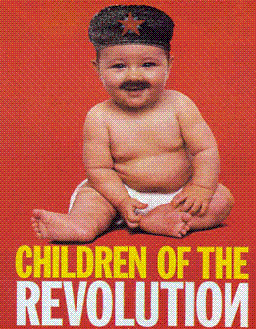|
Stephen Decatur High School A168 Historical Site |
|
|
Ch 15 Revolutions
Ch 15 Revolution AP TextbookFrench law courts, which claimed at times to speak for the nation, were the.The Don Cossack who led a major rebellion of Russian serfs in the 18th century was The English novelist who wrote Robinson Crusoe and Moll Flanders was _. The major destinations of the African slave trade were ___ and ___. The painter of the “Pilgrimage
to The Russian ruler often classified as an Enlightened absolutist was. A major composer in the late Baroque style was __. A religious movement in An 18th century Jewish religious movement stressing greater piety was the ___. by __. Eighteenth
Century A) Saw European rulers reject the idea of the Enlightenment B) Because
of the Enlightenment, saw no religious movements of any significance C) Saw important changes in agriculture that increased crop production D) Saw the decline of the African slave trade E) Saw increase in the production of nylon goods After
Peter the Great, A) The dismantling
of his father’s large army
B) A major war against C)The devotion by the king to raise and drill a large army D) The ending of serfdom in E)The opening of a democratically elected President Ruler who precipitated the mid-century wars-of the Austrian Succession and the 7 Yrs’ War was The 2 major
wars between Frederick the Great of Prussia and Maria Theresa of The Diplomatic Rev was A) an unexpected alliance of B) Was alliance
between C) Was an unlikely
alliance of D) Occurred because
Maria Theresa sought new allies in effort to retake E) A revolt over the right of ambassadors to have a sway in the local affairs The major geopolitical result of the Wars of the Austrian Succession and the 7 Yrs’ War combined was Eighteenth century warfare The
most important successor of Peter the Great in Catherine the Great did all of the following. Which one was not in accord with Enlightenment principles? A) She called
for a legislative Commission to suggest reforms and gave them an Instruction, or guideline, based on the ideas of Montesquieu
and Beccaria B) She invited
Diderot, editor of the Encyclopédie, to C) She corresponded with Voltaire D) She waged a successful war against the Ottoman Turks E) All deal with the Enlightenment The
reign of Louis XV of A) Was marked
by numerous tax and revenue problems B) Saw no wars of any consequence C) Clearly illustrated the idea of and effectiveness of Enlightened Absolutism D) Saw E) Was shortened when he was executed by the guillotine The Whigs and the Tories The dominating political institution
of The demand for sugar and other
agricultural products of the A) Started slavery in B)
Shifted the major direction of already existing African slave trade from towards the C) Had virtually no effect on African society D) Created a great need for donuts and candy E) None of the above World War I occurred in the 20th
century; nonetheless, some historians like to claim that the wars of the 18th century were truly world wars because Enlightened
Absolutism A) Refers
to the political ideas of Rousseau B) Refers to the monarchy of Louis XIV in the 17th Century C) Is the idea argued by some historians that several late 18th Century monarchs tried to undertake reforms inspired by Enlightenment ideas D) Electing a depot E) None of the above The
area in which Although Joseph II undertook reforms
where greater toleration of Jews-he ultimately failed because Among the unpleasant effects of
population growth in the 18th century was Cottage industry” developed
because Important contrast between the 18th century novel and 18th century art and architecture was Important part of the new agricultural
methods in Lower
class culture in the 18th century Religious
movements in the 18th Century The “Agricultural Revolution”
of the 18th Century meant The triumph of market-oriented
landowners in 18th century The
two major music styles of the 18th century were The
urban middle class—the bourgeoisie—of the 18th century |
